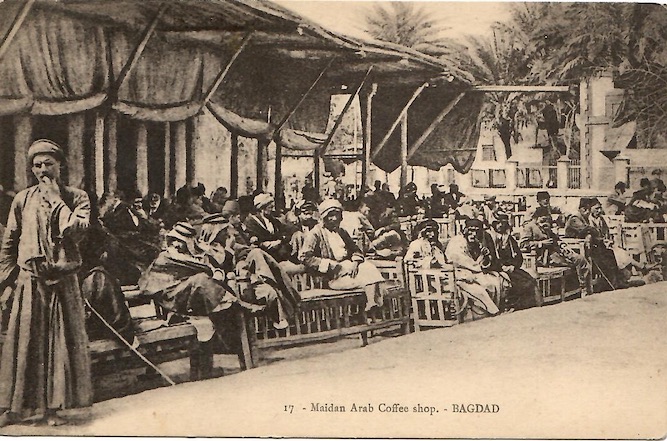
Here are several early 20th century postcards showing life in and around Baghdad.
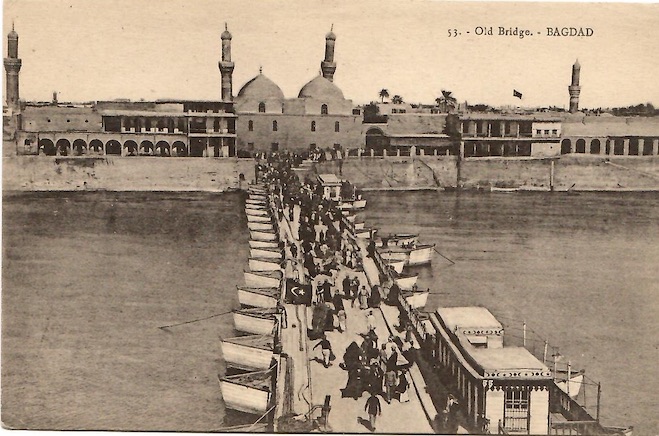
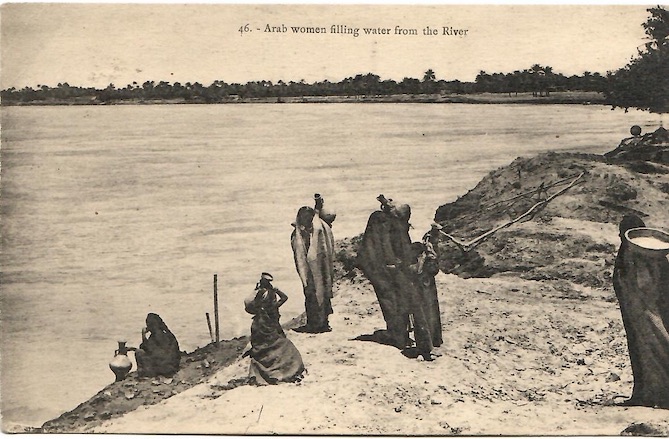

My friend Karim Ben Khelifa, an award-winning photographic journalist who I met over a decade ago, has produced an extraordinary film (“The Enemy”) on his experience as a photographer of war and violence in Iraq, Afghanistan, Palestine, the Democratic Republic of Congo and El Salvador, as well as 80 countries overall. On Youtube there is a talk he gave in 2019 about his work. including a number of his photographs. His amazing skill as a photographer is matched by his passion to show the reality of treating other human beings as enemies.
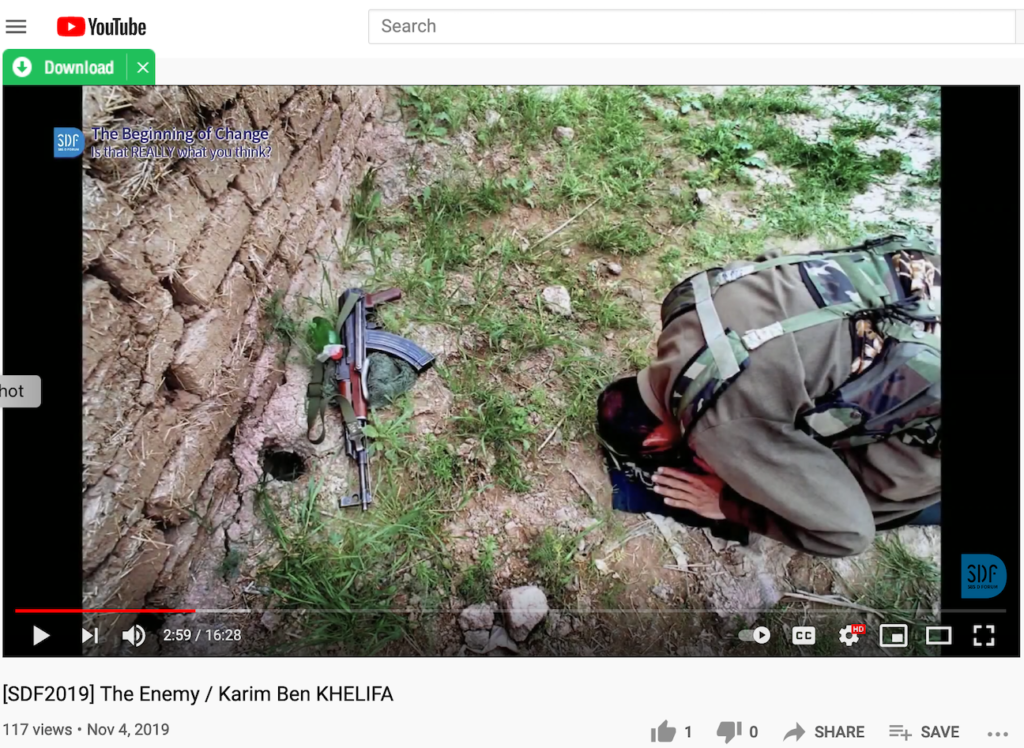
Karim has also taken photographs in Yemen over a decade ago. Some of these are archived on the New York Times blog. One of my favorites is the image of the mammoth mosque built in Sanaa by the late President Ali Abdullah Salih.
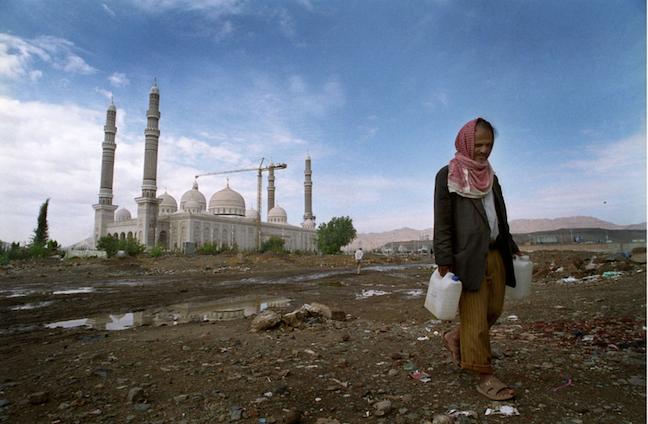
You can download fifty years of publications by the Metropolitan Museum of Art for free. Yes, for free. There are books on the art of Islamic Spain, Egypt, the Near East, etc. Check it out here.
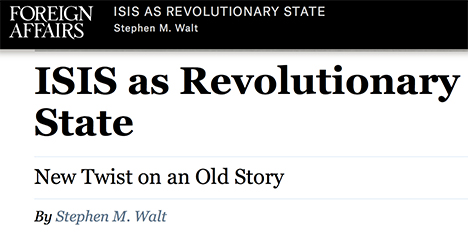
Stephen Walt has an astute analysis of the state of ISIS in Foreign Affairs.
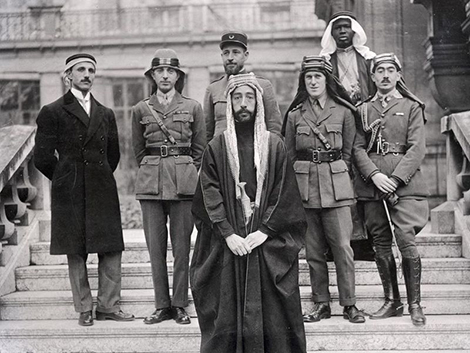
Faisal party at Versailles Conference. Left to right: Rustum Haidar, Nuri as-Said, Prince Faisal (front), Captain Pisani (rear), T. E. Lawrence, Faisal’s attendant (name unknown), Captain Hassan Khadri.
by Jeffrey D. Sachs, al-Qantara, December 21, 2015
There is no doubt that the crisis-riven Middle East is beset by some unique challenges. As Jeffrey Sachs argues, however, these are not the Sunni-Shia political divide, the future of Assad or other doctrinal disputes, but rather the unmet need for quality education, job skills, advanced technologies and sustainable development
The United States, the European Union, and Western-led institutions such as the World Bank repeatedly ask why the Middle East can′t govern itself. The question is asked honestly, but without much self-awareness.
After all, the single most important impediment to good governance in the region has been its lack of self-governance: the region′s political institutions have been crippled as a result of repeated US and European intervention dating back to the First World War – and in some places even earlier.
One century is enough. The year 2016 should mark the start of a new century of home-grown Middle Eastern politics focused urgently on the challenges of sustainable development.
The Middle East′s fate during the last 100 years was cast in November 1914, when the Ottoman Empire chose the losing side during the First World War. The result was the empire′s dismantling, with the victorious powers, Britain and France, grabbing hegemonic control over its remnants. Continue reading Geopolitics in the Middle East: A new century dawns
Clamping down with law and order will not be enough
by Thomas Piketty, Le blog de Thomas Piketty, Le Monde online, November 24, 2015
Confronted with terrorism, the response must involve security measures. We must hit Daech and arrest those who are members. But we must also consider the political conditions of this violence, the humiliation and the injustices which result in this movement receiving considerable support in the Middle East and today gives rise to murderous vocations in Europe. In the long run, the real issue is the establishment of an equitable model for social development both there and here.
One thing is obvious: terrorism thrives on the inequality in the Middle-East which is a powder keg we have largely contributed to creating. Daech – the Islamic State of Iraq and the Levant (ISIL) –is a direct consequence of the break-up of the Iraqi regime and more generally, of the collapse of the system of frontiers set up in the region in 1920. After the annexation of Kuwait by Iraq in 1990-1991, the coalition powers sent their troops to restore the oil to the emirs – and to the Western companies.
In passing, we started a new cycle of technological and assymetrical wars (a few hundred dead in the coalition forces in the ‘liberation’ of Kuwait, as against several thousand on the Iraqi side). This approach was pursued to the limit during the second war with Iraq, from 2003 to 2010: roughly 500,000 Iraqi dead as compared with 4,000 American soldiers killed; all this as revenge for the 3,000 who died on 11 September despite the fact that they had nothing to do with Iraq. This reality, compounded by the extreme asymmetry of loss of lives and the absence of any political way out of the Israeli-Palestinian conflict, is used today to justify all the abuses perpetrated by the Jihadists. Let us hope that France and Russia, who have taken over after the American fiasco, will do less damage and generate fewer vocations. Continue reading Combatting ISIS/Daesh